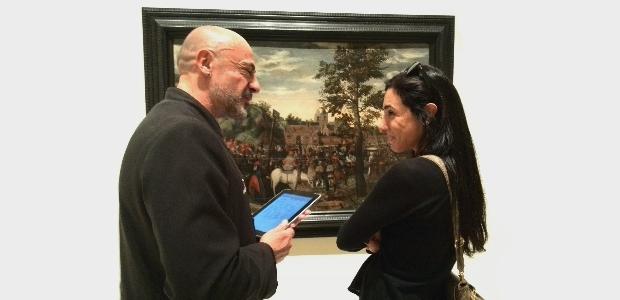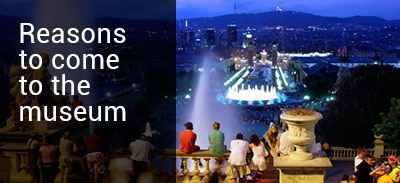
On 6th and 7th March the annual meeting of the Visitor Studies Group was held in London, which we were able to participate in. The topic proposed was Visitor studies, it’s all about relationship.
The scope was mainly Anglo-Saxon, the Visitor Studies Group is a research group of audiences and visitors that gathers together researchers from various areas of the organisations involved: management of audiences, education, communication, marketing, etc. but also researchers from universities, the administration, non-museum amenities and private companies.
All the presentations were based around the generic concepts of relationship and engagement between the organisations and the community.
Along these lines, Mark O’Neill, the Director of Policy & Research at Glasgow Life in his presentation Museums Change Lives spoke about the engagement of the Glasgow museums in the construction of relationships with a very diverse audience through long-term innovative programmes. Furthermore, to advance in the research methodology and to be socially relevant, it is necessary to learn from our own experiences and the experiences from other sectors (Health, Wellbeing, etc.). If the museums progress in these concepts, they will play a fundamental role in creating a more just and democratic society. The new paradigm is to participate in social renewal.
Within the context of methodological research there were presentations about studies carried out with the aim of trying to understand and evaluate what the educational value is of the activities carried out, irrespective of the degree of preparation of the visitors. In this sense, both the experiences of the zoo de Chester and of the Tate have been based on the technology, by recording on video the group or individual visit. This technology lets you dissect the way in which the visitors interact with their surroundings. This topic is the great unknown for all the museums, and on the other hand, it is the most important if it is believed that there is a social function to be achieved and it is necessary to increase this knowledge.
For practical purposes, with the results obtained in the studies, a series of measures have been undertaken to improve the impact of the programmes of activities so as to provide, among other benefits, a better experience of quality for the visitors.
As topics of applied research we discussed the work Evaluating Evaluation by Maurice Davies, from King’s College London. The main argument around which the study is based, is that the methodology of summative evaluation, a pedagogical evaluation tool, for measuring the educational impact of museums and galleries is of little impact and largely remains ineffectual for professionals, despite the substantial resources spent.
Apart from the interest in themselves of the communications and presentations, it was very useful to be able to establish contacts with researchers from some of the main museum institutions and from other amenities.
In fact, due to the variety of topics and approaches (study formulas, education, loyalty, relationships, communication) that were presented, it was an example of the transversality required between different professionals who make up the team of a museum. We all share the same interests or, at least, we need to work on unifying them.
In this sense I believe that the Strategy 2017 and the project of Social Responsibility that we are working on in the Museu Nacional fit in clearly with the current trends of getting closer to the society that have been able to be captured in the spirit of the professionals who attended the conference. We now need to develop these projects and, surely, go deeper into the research methodologies.
If you’re a museum visitor, do you think that the museums know enough about your interests?
Related links:
Permanent Museum Visitor Studies Laboratory
Into the Politics of Museum Audience Research (Tate Encounters) (PDF 970Kb)
Coordinador de RSC







